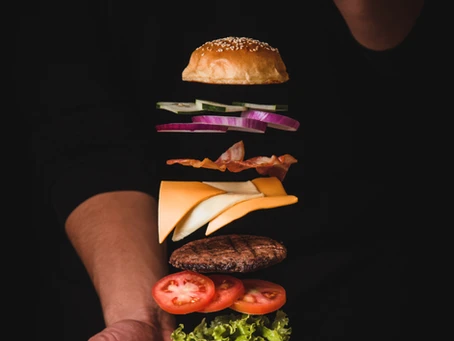Updated: Apr 15

‘What would you spend your money on if you won the lottery tomorrow?’
I remember the PR manager for a healthcare client asking me that several years ago. We talked about the usual things – the mortgage, the car, supporting family – but we also talked about causes. We both, for different reasons, wanted to give to organizations supporting individuals struggling with their mental health and those raising awareness. As professional communicators, we both understood the importance of talking about mental health.
I’m particularly interested in how brands, employers and non-profits talk about mental health so I’m always eager to see what Mental Health Awareness Month brings.
This year, it brought a controversial campaign from Burger King. For Mental Health Awareness Month, the fast food chain launched ‘Real Meals’ – five meals with a range of emotive names and packaging. For example, you could order a ‘Blue’ for sad, or a ‘Don’t Give a Fxxxx’ (French fry?) to suit your mental state. The campaign was delivered in partnership with Mental Health America, whose information was featured on the Meals’ boxes.
I haven’t found news yet on how meals were sold or other impact metrics for the campaign, but it certainly generated a lot of media coverage and discussion. Mental Health America’s CEO Paul Gionfriddo was quoted in PR Week, crediting the campaign with 2,500 earned media stories, 80% of which were positive.
So why the controversy? Some argue that Burger King was using the campaign to take a swipe at McDonalds and their happy meals. Some argue that it was using mental health problems to drive sales, raising the issue of exploitation. And in this article on Eater, a former employee argues that the campaign is at odds with Burger King’s workplace culture and management style. An article from The Mighty questions whether fast food, linked to depression, is a good partner for mental health causes.
My take on all this?
I’m happy to see a brand talking about mental health. But this campaign made me uneasy. It felt much more like a marketing stunt than a well thought through cause marketing campaign. A quick glance at Burger King’s Twitter feed shows just two tweets for a month-long campaign – and no connection with MHA or discussion about its resources. So a great stunt but where’s the follow through to really connect the brand to the cause and connect customers to resources and information about mental health?
For me, cause marketing needs to be more than a one-off ‘stunt’ or PR story. To deliver value for the brand and the cause, you need authenticity and credibility over time.
If you’d like to talk more about cause marketing and how we can all do well while doing good, get in touch – sarah@athrucommunications.com


